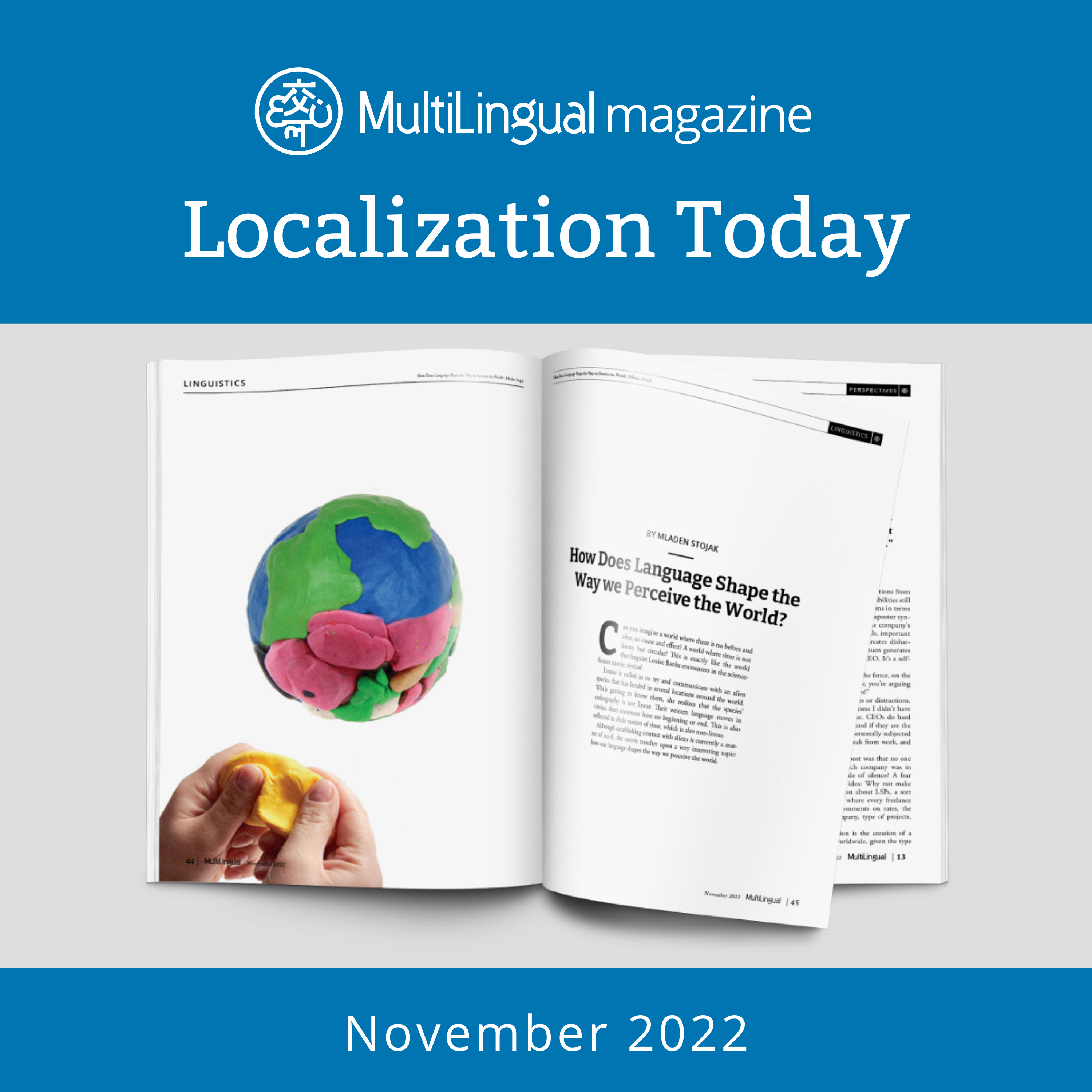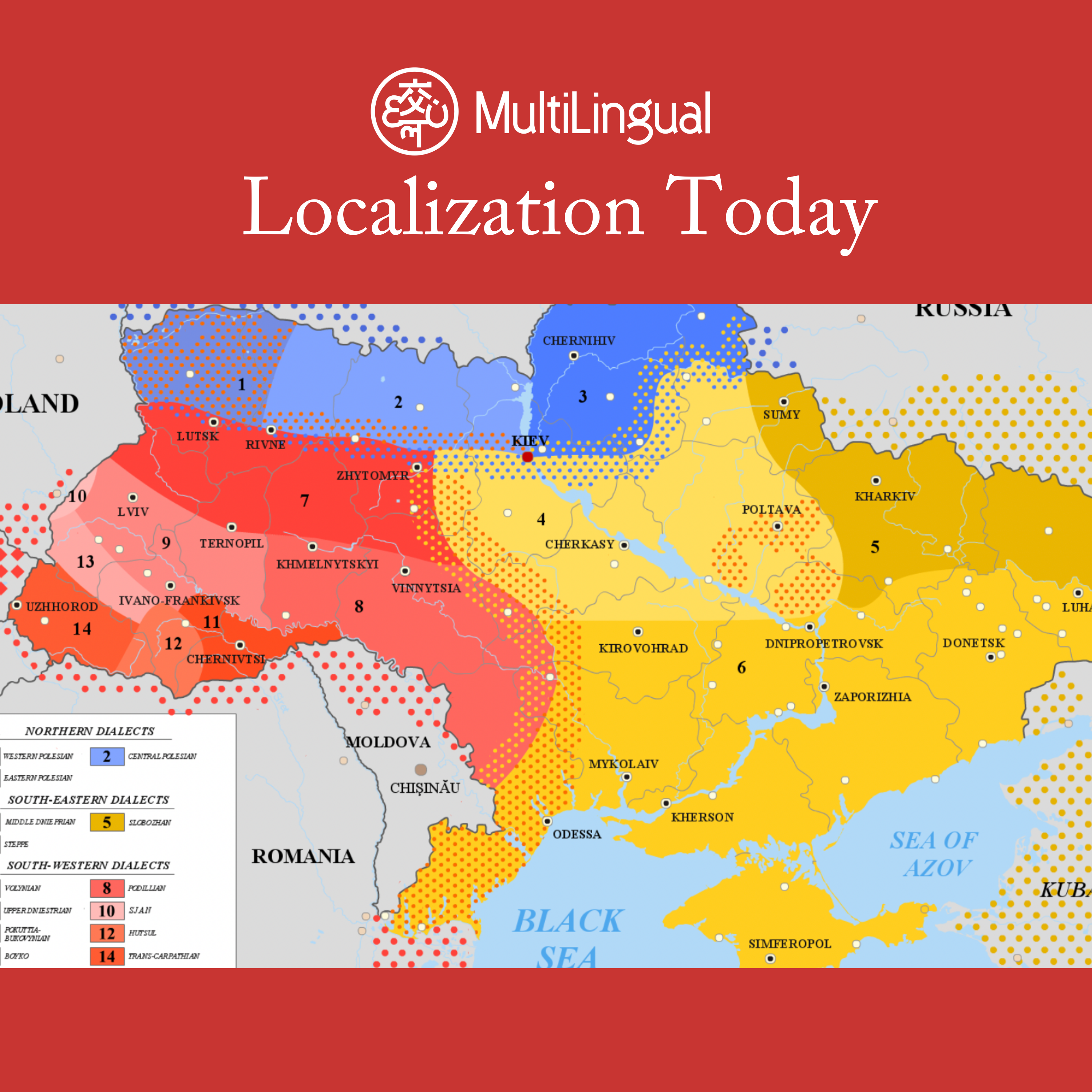Episode Transcript
[00:00:00] Speaker A: Overcoming the language how to elevate localization.
[00:00:03] Speaker B: Within your business by Pascal tremblay while.
[00:00:08] Speaker C: Language is everywhere and connects everyone, it is sometimes viewed as the least valuable.
[00:00:13] Speaker A: Asset within a business setting. This is what I call the language paradox.
[00:00:18] Speaker C: Recognizing that language is often undervalued in.
[00:00:21] Speaker A: A business is not new. However, this awareness presents a significant opportunity.
[00:00:27] Speaker C: For language professionals to elevate language as an essential asset. Localization professionals are uniquely positioned to contribute their expertise in implementing structured processes in language business operations.
[00:00:40] Speaker A: With the growing availability of language AI tools, it becomes crucial to establish structured workflows for processing all languages, including content expertise, review, quality assurance, and stakeholders input.
[00:00:53] Speaker C: Language professionals can play a pivotal role.
[00:00:56] Speaker A: In uniting content creators, copywriters, and localization.
[00:01:00] Speaker C: Teams and in developing a transformational approach to operationalizing languages into a business environment.
[00:01:07] Speaker B: While localization is undervalued, the significance of.
[00:01:11] Speaker C: Language as an instrument for interlinking human.
[00:01:13] Speaker A: Beings and their experiences is overlooked as.
[00:01:16] Speaker C: Language related tasks are relegated to mundane roles and perceived merely as routine components of occupational duties. Notable exceptions to this are roles such as copywriters and communication specialists.
[00:01:30] Speaker A: Yet, it is within the framework of.
[00:01:32] Speaker C: A localization infrastructure that we observe the stark disconnect from language within an enterprise.
[00:01:38] Speaker B: In a much your localization program, there.
[00:01:41] Speaker C: Is a strategic effort to interweave content.
[00:01:43] Speaker A: Components to connect every part of the.
[00:01:46] Speaker C: Whole for a seamless and holistic language experience.
Localization teams invest considerable time and resources.
[00:01:53] Speaker A: In quality assurance, managing glossaries, and creating style guides.
They strive to ensure that these assets cover not only targeted content, but also.
[00:02:03] Speaker C: The entire content ecosystem to leverage terminology across all functions and constantly provide a.
[00:02:09] Speaker A: Coherent, practical cost differentiation. But why is it still so challenging.
[00:02:14] Speaker C: For localization teams to bring a holistic approach to content?
[00:02:18] Speaker A: And more importantly, why is it so.
[00:02:20] Speaker C: Difficult to show the vital role of languages in the company's success?
There is a prevailing attitude that harmonization.
[00:02:27] Speaker A: Of the source language, typically spoken by the majority of the employees, will happen naturally as a matter of course.
[00:02:34] Speaker C: Additionally, teams writing content in the source language have an inherent advantage given their alignment with the majority of the market reach.
[00:02:43] Speaker A: They are not under constant pressure to.
[00:02:45] Speaker C: Demonstrate roy or justify productivity through higher.
[00:02:48] Speaker A: Output at lower costs.
[00:02:50] Speaker C: While there are brand terminology, guidelines and glossaries in source languages, most departments within an organization dont leverage language with process efficiency and cost differentiation as a goal.
[00:03:02] Speaker A: Language as an intellectual asset that every human can leverage to do their work.
[00:03:07] Speaker C: Is so obvious for the speakers of the source language that it becomes invisible and intangible.
[00:03:13] Speaker B: A new approach to elevating localization the.
[00:03:17] Speaker C: Language industry has consistently faced challenges in clearly demonstrating the vital role of localization and globalization in achieving corporate success.
[00:03:26] Speaker A: Until now, the industrys approach has been.
[00:03:29] Speaker C: Advocating for the necessity of localizing content and tailoring products linguistically to cater to the diverse requirements of customers across global markets.
[00:03:38] Speaker A: This approach, while valuable, has remained relatively static over time, and the vital role of localization has remained under the radar. However, as enterprises continue their digital transformation.
[00:03:51] Speaker C: The integration of language technologies into core enterprise ecosystems is providing new paths for localization to grow in significance within the organization.
[00:04:01] Speaker A: In fact, localization is increasingly expanding on a dual path of language proficiency, translation and transcreation, and language capabilities content enablement at scale through a language technology stack.
[00:04:15] Speaker C: This transformation is incredibly important for the following reason.
[00:04:19] Speaker A: Within the core ecosystem of an enterprise.
[00:04:21] Speaker C: No matter how many languages are being.
[00:04:23] Speaker A: Translated, a failure from the language technology.
[00:04:26] Speaker C: Component creates repercussions across the entire ecosystem.
[00:04:31] Speaker A: Therefore, to ensure viable workflows, not only.
[00:04:34] Speaker C: Is it now necessary to partner with.
[00:04:36] Speaker A: Localization, but it is also an opportunity.
[00:04:39] Speaker C: To gain visibility within the enterprise.
[00:04:42] Speaker A: The question now is how we can.
[00:04:44] Speaker C: Effectively convey the transformative potential of AI to those at the helm of enterprises.
[00:04:49] Speaker A: And thus become agents of change.
Solving the language paradox by integrating and.
[00:04:54] Speaker C: Operationalizing all languages into a unified and holistic ecosystem will allow us to leverage and scale the benefits of emerging technologies.
[00:05:02] Speaker A: Faster and set language assets as a competitive advantage.
[00:05:08] Speaker C: This article was written by Pascal Tremlay, a Seattle based global strategy consultant with experience empowering organizations to enable their fullest potential. He now advises and develops language capability.
[00:05:21] Speaker A: Initiatives for growing companies, including organizational development strategy and technologies.
Originally published in multilingual magazine, issue 227, April 2024.


